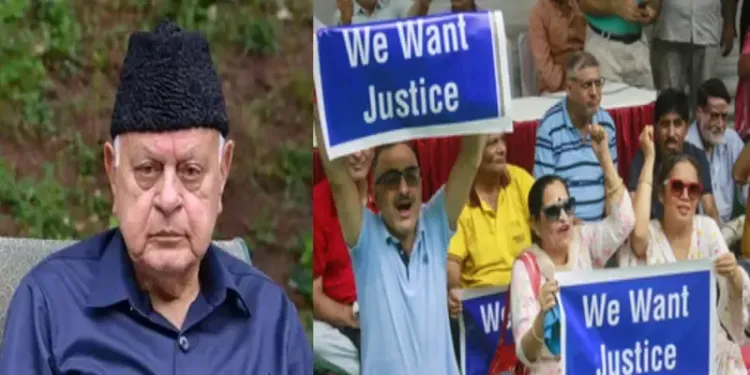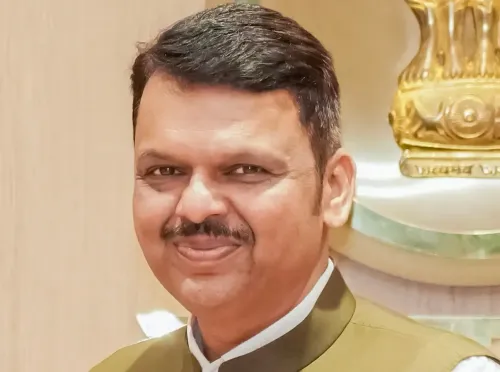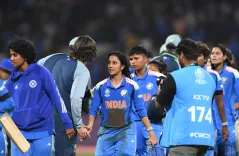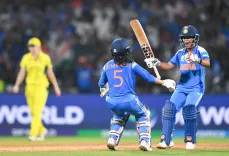Farooq Abdullah: The Key to Kashmiri Pandit Exodus

Synopsis
Key Takeaways
- Farooq Abdullah and Mufti Sayeed are seen as responsible for Kashmiri Pandit exodus.
- 1986-1989 was a critical period for Kashmir's descent into violence.
- Numerous warnings from intelligence agencies went unheeded.
- Many terrorists were released during Abdullah's tenure.
- Kashmiri Pandits demand a thorough investigation into the violence.
New Delhi, Jan 19 (NationPress) A significant number of Kashmiri Hindus perceive Farooq Abdullah and Mufti Mohammed Sayeed as the primary figures responsible for the acts of terror inflicted upon them.
At the onset of terrorism in Kashmir, Farooq Abdullah, then Chief Minister of Jammu and Kashmir, was in office, while Mufti served as the Union Minister.
These two influential political figures of the valley, during the post-Sheikh Mohd Abdullah era, were in power when Kashmiri Hindus became prominent targets of terrorism. Both leaders were well aware of the escalating violence in the region. Mufti passed away in January 2016, while Farooq Abdullah remains a key player in Jammu and Kashmir politics, with his son currently serving as the Chief Minister of the Union Territory.
Kashmiri Pandits hold Farooq Abdullah accountable for the circumstances leading to the mass exodus of their community and the rise of terrorism. He served as Chief Minister from November 7, 1986, until January 18, 1990, during which Kashmir began to descend into chaos despite numerous alerts from intelligence agencies regarding the impending crisis.
In February 1986, extensive communal violence erupted in South Kashmir, where Muslim mobs attacked and destroyed properties and temples belonging to Kashmiri Pandits. During this time, Ghulam Mohammad Shah, Farooq Abdullah's brother-in-law, was Chief Minister and he failed to contain the violence, eventually calling in the army to restore order.
Shah's government was dismissed in March 1986 by then-Governor Jagmohan. Reports suggested that Mufti Sayeed, a Congress leader at the time, had incited the violence as he sought to take over the Chief Minister position.
Later, Rajiv Gandhi, the Prime Minister at the time, appointed Sayeed to the Rajya Sabha and made him a Union Minister. In November 1986, following extensive negotiations, Rajiv Gandhi and Farooq Abdullah signed an accord, reinstating the latter as Chief Minister.
This era marked the precursor to the violent attacks.
The years 1986-1989 are crucial in Kashmir’s history, often overlooked. The exodus did not occur suddenly; it was preceded by significant preparations. Young Muslim men were crossing over into Pakistan-occupied Kashmir for military training aimed at fostering terrorism.
Repeated warnings from intelligence agencies regarding the influx of youths into PoK for arms training largely went unheeded.
Numerous kidnappings, particularly of government employees, were prevalent, with many victims being Kashmiri Pandits, but no decisive actions were taken.
Public threats were rampant, disseminated through local newspapers and posters, yet the administration appeared unresponsive. The police force was compromised, with some officers allegedly aiding the terrorists.
During Farooq Abdullah's tenure, many terrorists were released from custody. Former Jammu and Kashmir DGP S.P. Vaid noted that many in the country remain unaware that the first cohort of ISI-trained terrorists had been apprehended but were released due to misguided political decisions, later becoming leaders of various terrorist factions in J&K.
Vaid, who served as DGP from December 31, 2016, to September 6, 2018, tweeted about notorious individuals involved: Mohammed Afzal Sheikh of Trehgam, Rafiq Ahmed Ahangar, Mohammad Ayub Najar, Farooq Ahmed Ganai, Ghulam Mohammed Gujri, Farooq Ahmed Malik, Nazir Ahmed Sheikh, and Ghulam Mohi-Ud-Din Teli. He questioned whether such actions could have transpired without the Union Government's awareness in 1989.
Many inquiries remain that only Farooq Abdullah can address. Unfortunately, he has never faced scrutiny. The exodus of an entire minority community has yet to be thoroughly investigated. Numerous Kashmiri Pandits were murdered, women were raped and brutally killed, and the properties belonging to minorities were seized. Many temples and other sacred sites were vandalized, yet this did not prompt an investigation. No government, at either the state or Central level, initiated the formation of a Special Investigation Team or judicial commission to explore the acts of violence against Kashmiri Pandits.
Kashmiri Pandits are convinced that had Farooq Abdullah or Mufti Sayeed taken decisive action, terrorism could have been averted, and the minorities would not have faced such persecution leading to their displacement.
The community is demanding answers and insists on a judicial commission with Farooq Abdullah being the first to be interrogated.
(Deepika Bhan can be contacted at deepika.b@ians.in)









